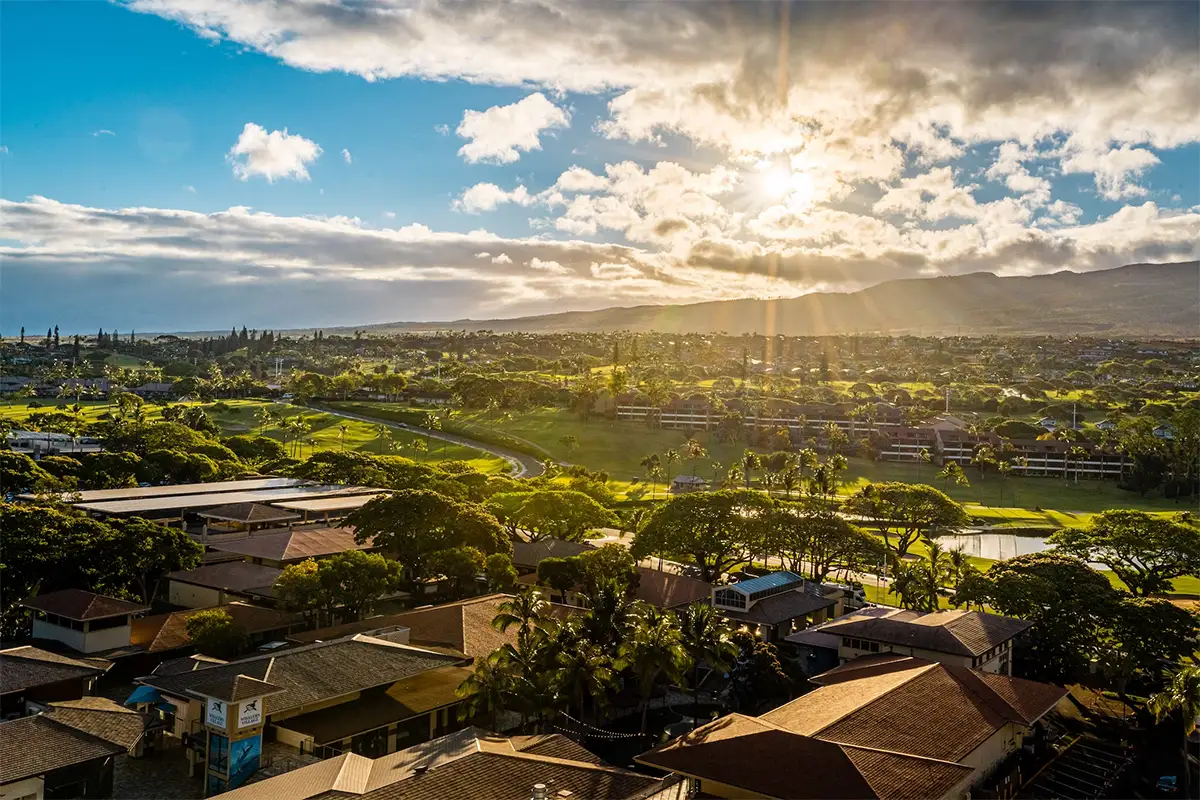 Hawai'i Journalism Initiative
Hawai'i Journalism InitiativeMaui coffee farmers: How did Mahi Pono obtain disease-resistant plants while they could not?
KULA — Gerry Ross has grown coffee at his 4-acre Kupa’a Farms in Kula for more than 25 years, but since 2020 he and many other farmers on Maui have battled coffee leaf rust, a disease that attacks the plant leaves and severely limits the yield of the plants.
Since the discovery of the disease on Maui in 2020, the local coffee farming community has been trying to navigate state laws that require a one-year quarantine period and heavy inspections to import cultivars that are resistant to coffee leaf rust. But so far, they say, their efforts to obtain these cultivars have been futile.

That’s why Ross said he was stunned last month when he found out that local farming company Mahi Pono is preparing to harvest 80 acres of coffee, which was created from the coffee leaf rust-resistant Castillo cultivar that was planted in the first quarter of 2022.
HJI Weekly Newsletter
Get more stories like these delivered straight to your inbox. Sign up for the Hawai‘i Journalism Initiative's weekly newsletter:
Ross wrote a letter of complaint to Hawaiʻi State Department of Agriculture Chairperson Sharon Hurd on Dec. 15, asking how the giant agricultural company that has 41,000 acres of land in Central Maui was able to import the disease-resistant cultivars while all the smaller farmers on the island were unsuccessful in trying to do so.
“When I heard about that, I was like, ‘Well, wait a minute, there’s a bunch of us that have been waiting patiently on the sidelines. And, we play by the rules,’ ” Ross said on his farm Monday. “If you’re going to bring something in, it has to go through quarantine, et cetera. And that was not the case.“

Ross said coffee leaf rust is devastating to the coffee plants that it reaches. It shows up as rust-colored spots on coffee plants and leads to loss of leaves and in severe cases, the death of trees, according to the state Department of Agriculture. First found in Africa in 1861, it’s now been reported in all major coffee-producing countries and first showed up in Hawai’i in October 2020 on the coffee leaves of a Haʻikū farmer.
Ross said that a little more than 10 years ago growers on Hawai’i island brought in coffee leaf rust-resistant seeds and “planted them out just because they thought in the future this disease is going to show up and we should be prepared. … So there is at least one resistant cultivar that had been brought into Kona not using proper protocol.”
While the coffee leaf rust-resistant cultivars are now established on Hawai’i Island, Mahi Pono said in an emailed statement to the Hawai’i Journalism Initiative that its Marsellesa varietal that is about to be harvested was purchased from growers on Hawai’i Island.

“At Mahi Pono, we are proud of the progress we’ve made with our coffee plantings on Maui,” the Mahi Pono statement said. “After purchasing what was marketed to us as Castillo, our independent genetic testing discovered that it was a Marsellesa varietal.
“At the time of this test, this varietal was already planted on 80 acres of farmland and is now nearing harvest. In line with our commitment to supporting local small businesses, we have purchased all our coffee seedlings in-state and from local coffee farms. Their expertise and high-quality certified plants were critical to ensuring the success of our coffee cultivation efforts.”
Mahi Pono also said it is willing to share its coffee leaf rust-resistant plants with other Maui coffee farmers.
“We recognize the challenges coffee farmers face in addressing coffee leaf rust, and we remain committed to collaborating with the broader agricultural community to strengthen coffee farming across the islands,” Mahi Pono said. “As we prepare for the first harvest of the Marsellesa varietal, we are excited about its potential to contribute to the sustainability and resiliency of Maui’s coffee industry.”
But Ross and other Maui coffee farmers say its unfair that Mahi Pono was able to get this far in the process while no one else on Maui has been able to.

“On the surface, it appears that they didn’t do anything wrong because they basically got the seeds from the Big Island,” Ross said. But, “Mahi Pono should not have been able to purchase those seeds to grow them out because no one else in the state is allowed to do that.”
Hurd said in a phone call on Wednesday afternoon that she couldn’t comment at this time because she had yet to speak with Ross about his complaint. However, Hurd acknowledged that Ross’ complaint letter was looked at by the state Department of Agriculture, and that she has reached out to Mahi Pono about the complaint.
Andrea Kawabata, a county extension agent on the Big Island in charge of coffee statewide, said: “I’m not sure what the holdup is for the Maui permits” for coffee leaf rust-resistant plants and seeds.
Sydney Smith is the facilitator for the Ag Working Group, a group of farmers on Maui that help each other and advise government officials about agricultural issues. Smith and her husband are the owners of Maliko Estate Coffee. They have grown coffee on about 5 acres of their land below Makawao since 1990.
Through several inquiries with government officials, Smith was able to confirm that Mahi Pono obtained the Marsellesa coffee seeds from Hawai’i Island legitimately, but still wonders why so many other requests from smaller farms on Maui have not been successful.

“To get something into the state you need to do a grow-out in a quarantine facility and there is one on each island,” Smith said via phone on Tuesday. “If you can do that and they can see that there’s no bugs or anything, then you’re allowed to take those coffee plants and plant them, but its expensive and a very long process to go through that, to get all the approvals and do all that.
“We’re still waiting for the state to let us know when these (coffee leaf rust-resistant cultivars) are available and then the next thing we hear is Mahi Pono has put in 80 acres. So, we’re like, ‘Wait a minute, what the heck?’ We’re just kind of dumbfounded by this. … What are the rules here?”
Ross summed it up this way: “If these (Mahi Pono) guys can get rust-resistant cultivars at the snap of a finger, then why can’t the rest of us get that? And if they’ve actually contravened legal stuff they should pay the consequences of that. Ultimately, we want all farmers in the state to have access to contemporary rust-resistant cultivars. And there’s lots of them out there.”





